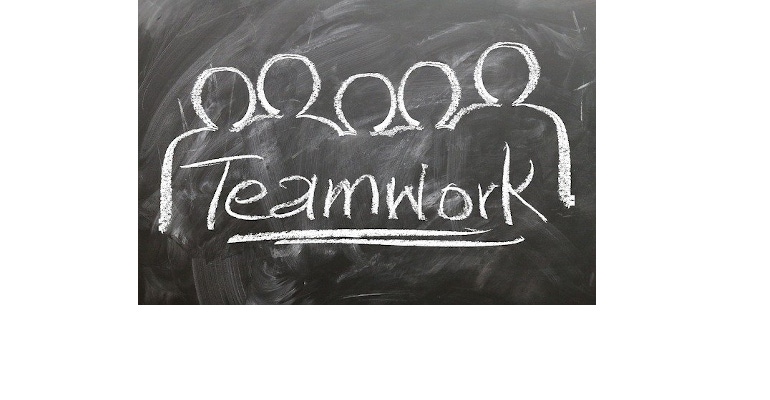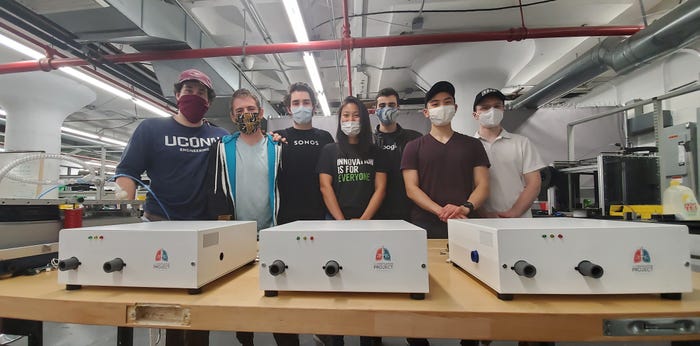Volunteers Team Up to Develop a New Ventilator During the COVID-19 Pandemic
More than 50 partners have collaborated on The Ventilator Project, a nonprofit organization focused on ‘filling gaps in the medical market.’
June 29, 2020

Robotics entrepreneur Tyler Mantel paused his work on his own startups to create a nonprofit organization consisting of individuals from a variety of companies. Mantel’s project is developing a new ventilator that solves complicated engineering problems and thrives within the unique ecosystem of the supply chain during this new pandemic world. MD+DI spoke with Mantel, president of The Ventilator Project, about the organization, the ventilator itself, and how the medical device industry can get involved.
On March 20 of this year, Mantel started The Ventilator Project with the goal of providing ventilators that would help during the COVID-19 pandemic. “We knew that if the ventilator shortage remained unresolved, many could die,” he said on the project's Web site.
Days later, there were 15 engineers working on the project. Within a month, the team had a prototype ready. Now The Ventilator Project has more than 250 people working in various capacities to get their device, known as AIRA, to market.
“The people on our project come from companies as disparate as Amazon Robotics to GE Healthcare. We have people from Apple, Google, Clear Motion, and Procter & Gamble—all the way up to the executive levels of these companies,” said Mantel. “The number and the quality of these people who have come out of the woodwork to help solve this global need, that has been the reason we've been successful so far.”
The idea for AIRA was conceived after posing a series of questions to doctors, purchasing managers, and hospital administration to get to the root of what type of ventilator would be most safe and efficient, said Mantel. “And what we've learned is that it has to be easy to use, easy to store, and safe for the patient,” he explained.
AIRA aims to solve many of the challenges that typical ventilators face and to be less expensive as well. “We're looking at a market of ICU ventilators that cost $25,000 to $50,000 and aren’t inherently storable or scalable for the global market,” he said, noting that one of the unique properties of AIRA is that it is easily stored and transported.
This is important, Mantel said, because a typical ventilator spends almost its entire life cycle in storage. “When it comes out of storage, it is one of the most important pieces of equipment to one person's life,” Mantel explained. “So it has to be able to sit in storage for most of his life and come off the bench ready.”

Within the next couple of weeks, The Ventilator Project will finalize its documents to file an Emergency Use Authorization (EUA) with FDA. “Right after we get the EUA, we'll turn our sights on [getting a] 510k and simultaneously go after certifications around the world,” said Mantel.
The Ventilator Project has more than 50 manufacturing partners set up at every level of its supply chain, Mantel said, and “when we get this safely into market we can absolutely hit the ground sprinting.”
Right now, Mantel said The Ventilator Project is laser focused on how it can save lives with the ventilator but has visions for other products on the horizon. “The future of this company will consist of filling the gaps in the medical market. We will always put the customers at the top of our decisions and you can bet some really innovative products will come on the tail end of that,” Mantel said.
“There are people out there who want to step out and solve these human problems. It doesn't go away with ventilators,” Mantel said. “We can use this platform and position in the world to make sure that we can find other areas similar and ensure that we don't get into this position again,” he concluded.
Mantel encouraged anyone who is willing to give time, money, or expertise to get involved with The Ventilator Project. He will be speaking in the upcoming BIOMEDigital session, Heroes of Rapid Product Development & Manufacturing — The Ventilator Project, on Thursday, November 5 at 9:00am - 10:00am ET.
Editor's note: This article was updated October 28, 2020, with the BIOMEDigital session details.
About the Author(s)
You May Also Like



.png?width=300&auto=webp&quality=80&disable=upscale)
